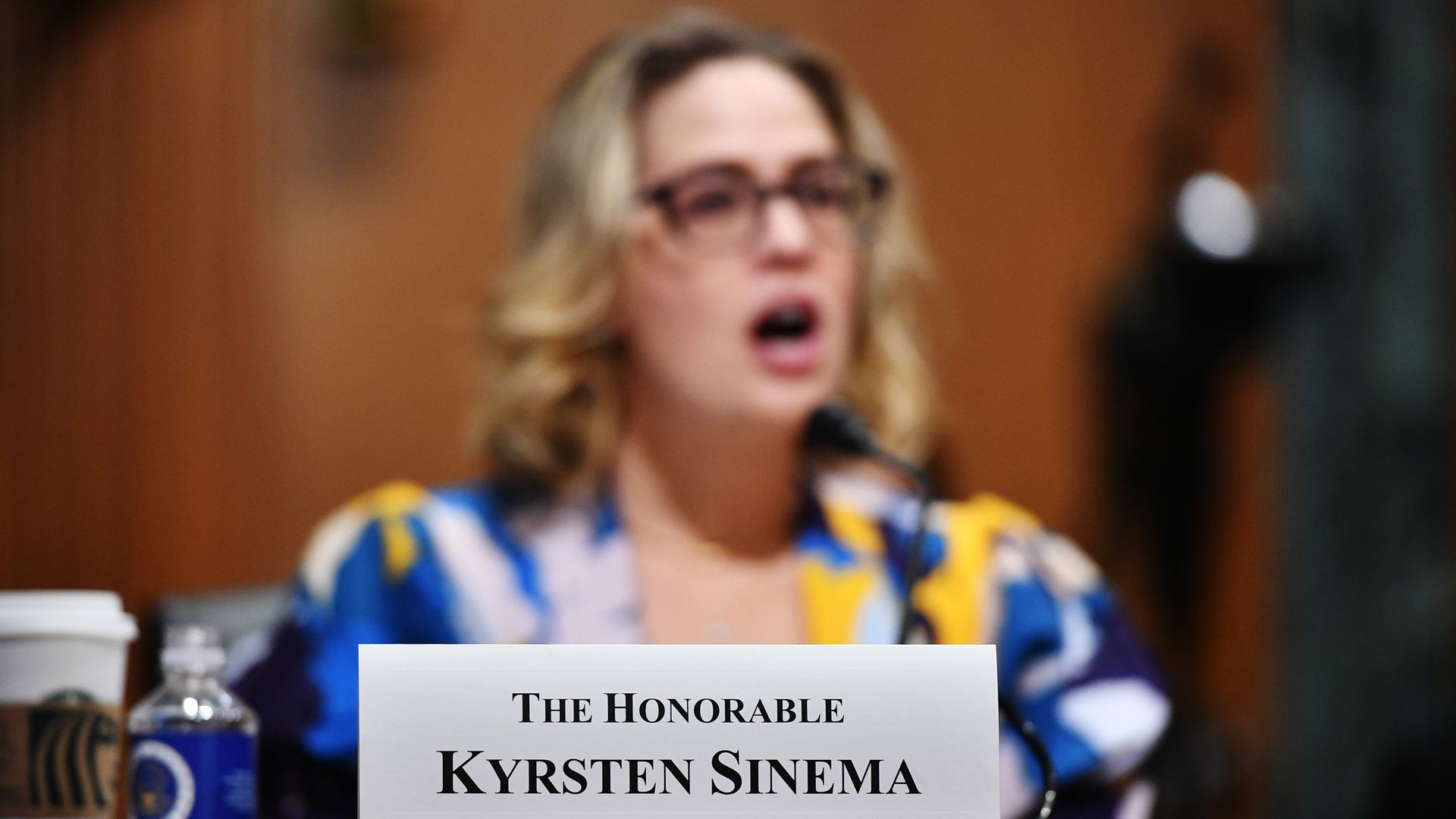Stymied by Sinema
Add Axios as your preferred source to
see more of our stories on Google.

Photo: Mandel Ngan/Pool/Getty Images
Congressional leaders say Sen. Kyrsten Sinema’s (D-Ariz.) potential opposition to any corporate or personal tax increase will complicate — and potentially delay — President Biden’s $2 trillion plan to expand the social safety net.
Why it matters: If tax hikes are out, lawmakers have to find new revenue streams to pay for child care and other administration priorities. Sinema may not be opposed to some drug pricing reforms or enhanced IRS enforcement, Axios has learned.
- While an alternative slate of roughly $2 trillion in tax increases — including a proposed billionaires tax — could partially plug the gap, some Democrats are reluctant to rush it through the legislative process.
What they're saying: “Getting the details right on tax policy is really important,” Sen. Mark Warner (D-Va.) told Axios. “We could mess some of this up.”
- “There's a reason why you only do tax policy in a major way every few years,” he said.
Driving the news: Lawmakers in both chambers are growing increasingly concerned that even if Sinema and Sen. Joe Manchin (D-W.Va.) can agree to a top-line price tag, Democrats may be just as divided about how to pay for new programs.
- Sinema has suggested to lobbyists she's opposed to any corporate or personal tax increase, forcing the Senate Finance Committee to return to the drawing board, the Wall Street Journal reported.
- Negotiators had been counting on more than $800 billion in new revenues by raising the corporate, personal and capital gains rate.
- “There's a lot of mechanisms on the list of potential ways to pay for it,” said Sen. Jeff Merkley (D-Ore.). “And there's probably compromises with different members to be made over specific items.”
House Way and Means Committee Chairman Richard Neal (D-Mass.) agreed Sinema’s opposition makes a final deal “more complicated.”
- The senator’s office declined comment.
By the numbers: The president initially proposed raising the corporate rate to 28% from 21%, but Senate Democrats have been hovering around a compromise 25% rate since April.
- Biden also wanted to increase the top individual rate to 39.6% from 37%, and increase the top capital gains rate to 28% from 20%.
- Negotiators also are looking to pay for some of their spending by allowing Medicare to negotiate drug prices with pharmaceutical companies, raising between $300 billion and $600 billion.
- The White House also estimates the administration can raise up to $700 billion by surging funding into the Internal Revenue Service for tax enforcement.
Between the lines: Sinema’s prized legislative accomplishment, the $1.2 trillion bipartisan infrastructure package, relied on all kinds of accounting gimmicks to offset the cost, including so-called dynamic scoring.
- While Manchin insists any new spending be paid for, Sinema isn’t as committed to budget neutrality.
Be smart: Either Manchin will blink on offsets or everyone will accept fuzzy accounting and pretend the spending is covered by paper tax proposals.
